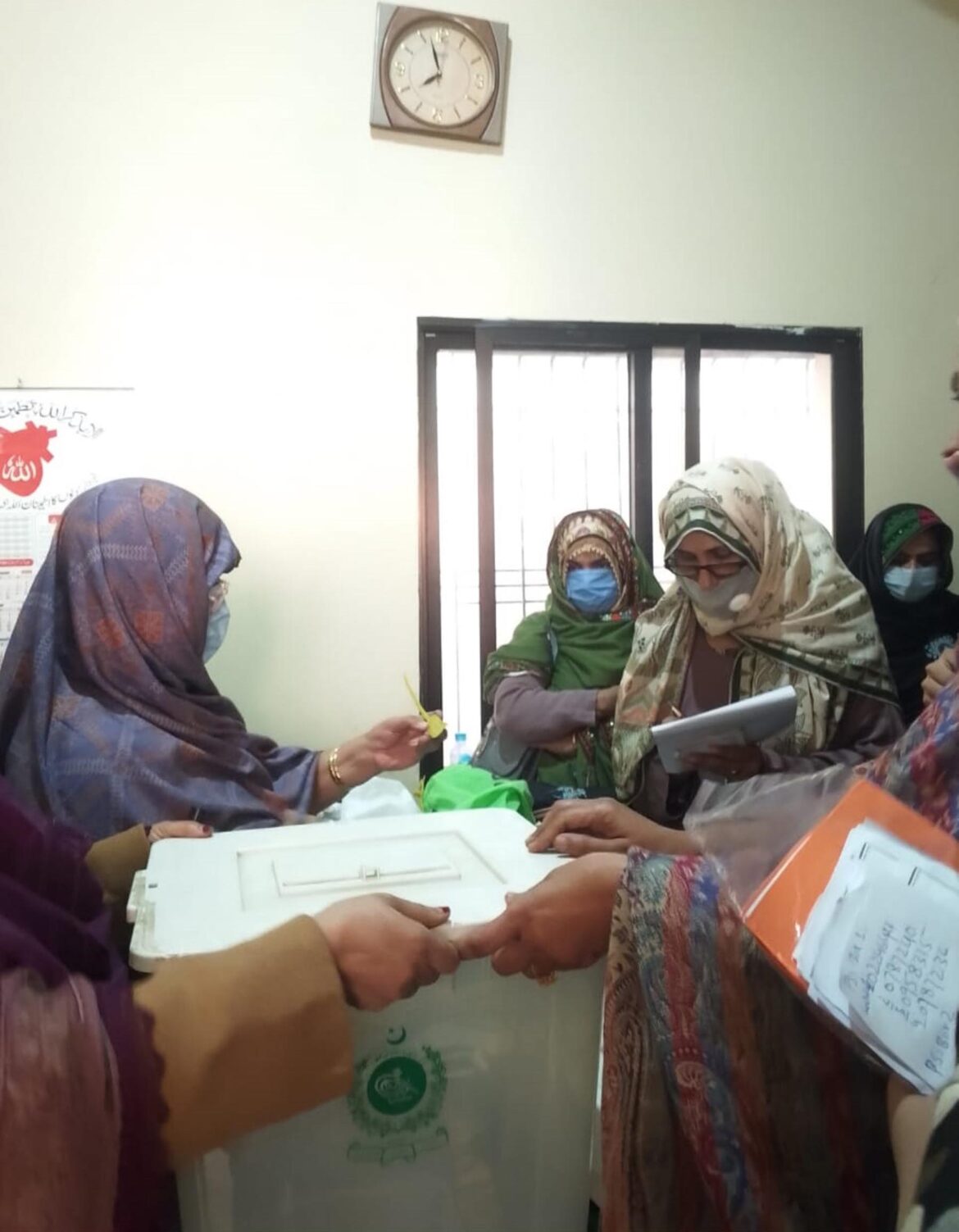By Staff Reporter
ISLAMABAD: Pakistanis began voting on Thursday in a tense election that could decide the fate of the country’s struggling democracy and its near-bankrupt economy, amid tight security and threats of violence.
As millions of registered voters are set to cast their ballots, former Prime Minister Imran Khan — one of the country’s most popular politicians — is incarcerated and barred from contesting the polls. The country shut down border crossings with its western neighbours, Iran and Afghanistan, for one day to ensure peaceful polls.
The authorities also temporarily suspended mobile phone services on Thursday morning to strengthen security following a rise in militant attacks in the run-up to the election.
“As a result of the recent incidents of terrorism in the country, precious lives have been lost, security measures are essential to maintain the law and order situation and deal with possible threats, hence the temporary suspension of mobile services across the country,” the interior ministry said in a message on X, a social media platform.
Two blasts near election offices on Wednesday killed 26 people in the southwestern province of Balochistan. The Islamic State claimed responsibility for the blasts in a message on its Telegram channel.
The country is on high alert with 650,000 security personnel, including army and paramilitary forces, deployed across the country to safeguard the voters and the polling stations.
Over 128 million will cast their votes at 90,675 polling stations for a total of 5,121 candidates, contesting for the 266 seats to elect the 16th national assembly.
The elections are expected to be the most competitive and consequential in Pakistan’s history, as three major parties vie for power in the nuclear-armed nation of 230 million people. But allegations of rigging, intimidation and violence, amid a crackdown on the opposition, have already been leveled by opposition and rights groups.
The Pakistan Muslim League-Nawaz (PML-N), led by former Prime Minister Nawaz Sharif and his brother Shehbaz Sharif, is facing a stiff challenge from the Pakistan Peoples Party (PPP), headed by Bilawal Bhutto Zardari, the son of slain former Prime Minister Benazir Bhutto, and the Pakistan Tehreek-e-Insaf (PTI), led by jailed Khan.
The stakes are high for Pakistan, which is facing a host of challenges, including IMF-based tough and inflationary fiscal measures, a resurgent Taliban, and strained relationships with all its neighbors, except China.
Many experts agree that in Pakistan’s political landscape today, Sharif, a three-time former prime minister, is widely seen as the front-runner for the top job, after returning from exile and clearing his name of past charges.
Analysts and opponents say Sharif is being backed by the generals.
Sharif, who was ousted in 2017 over corruption allegations and banned for life from holding public office, came back to Pakistan last October, avoiding prison sentences that were soon overturned.
His main rival, Khan, was removed from power in April 2022 by a vote of no confidence and is now in jail, barred from running in the election. Khan still has a loyal base of supporters, but many observers believe that his dramatic downfall and Sharif’s smooth comeback have predetermined the outcome of the vote.
A year ago, Khan was a free man, campaigning for a comeback, while Sharif was in London, apparently sidelined. But the situation has reversed. Khan is behind bars, while Sharif’s return and exoneration — along with a late-starting but well-funded campaign — have made him the favorite of the security establishment.
But analysts are skeptical that the powerful military will tolerate a strong and independent civilian government, especially one led by Sharif, who has clashed with the army in the past. Some observers suspect that the military may try to create a hung parliament, where no party has a clear majority, and then arrange a coalition government that suits its interests.
The military has dominated the nuclear-armed country either directly or indirectly in its 76 years of independence, but for several years it has maintained it does not interfere in politics.
Analysts say there may be no clear winner, but Pakistan’s powerful generals could play a role.
Smaller political parties could play a crucial role in the formation of a government that will need 169 seats in the 336-member National Assembly. Voters directly elect 266 members, while there are 70 reserved seats — 60 for women and 10 for non-Muslims — allotted according to the number of seats won by each party.
Parties, including the Muttahida Qaumi Movement-Pakistan, the Jamiat Ulema-e-Islam Fazl, the Awami National Party, the Pakistan Muslim League Quaid-e-Azam, the Balochistan National Party, are also poised to make gains and play a role in case no major winner emerges.
Independents, many of whom are being backed by Khan, are free to join any party if they win, which could swing fortunes after the vote.
Pakistan, having conducted 11 elections since 1970, has a history marred by controversy, as each election has been shadowed by allegations of rigging, casting doubts on the fairness of the electoral process.
Copyright © 2021 Independent Pakistan | All rights reserved




